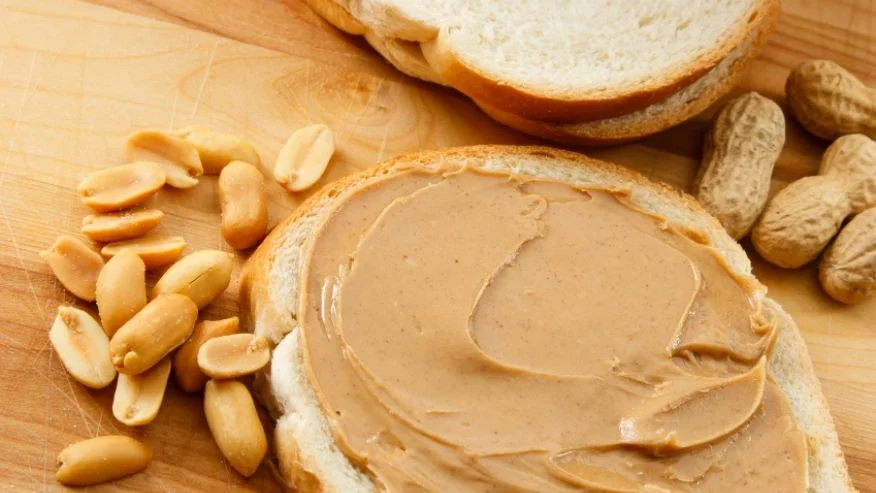New advice on managing peanut allergies
/If peanut allergies run in your family, there is new advice and recommendations regarding the proper time to introduce peanut products into your child’s diet. In recent years, back in 2000, the American Academy of Pediatrics recommended delaying the introduction of the top known foods that caused most allergies - eggs, milk products, fish and peanuts – until sometime after the child’s first birthday. That advice for peanuts has done an about face.
The new advice comes in response to a randomized study conducted earlier this year that discovered that it’s best not to wait until after the first birthday but rather to give a baby under one year of age, when there’s a window of tolerance, an introduction to peanut products such as giving peanut butter.
In the United States, 1 in every 13 children under the age of 18 is affected by a food allergy and about 1 in 50 school-age children in the U.S. are allergic to peanuts. Food allergies have increased approximately 50% between 1997 and 2011. The top 8 allergenic foods include:
1. Cow’s milk
2. Eggs
3. Peanuts
4. Tree nuts
5. Fish
6. Shellfish
7. Soy
8. Wheat
The recommendations for when to introduce allergenic foods to babies have been evolving. It used to be that pediatricians and allergists recommended waiting to introduce highly allergenic foods until after the first birthday and even then sometimes to avoid them for years. New recommendations through research is now saying that there is no evidence to delay introduction of these foods as it may help to reduce the risk of an allergy later on.
What the new guidelines say for introducing peanuts to babies
The new guidelines recommend introducing peanut-containing products sometime between 4 and 11 months of age, whether your family has a history of food allergies or any kind or not. Scientific research indicates that by introducing peanut protein during that time frame shows a reduction in the incidence of peanut allergies as compared with avoiding peanut proteins until later in life. Subjects who were in the research study showed that those who did consume peanut products during infancy had 81 percent fewer peanut allergies after five years than those who delayed the introduction of peanut products into their diet.
How to introduce peanut products into a baby’s diet
If food allergies and particularly peanut allergies run in your family, always consult with your pediatrician or an allergist for their recommendation on introduction first. Do not give any peanut products to your baby until this has been done. Once they have given the go ahead for introducing peanut products, then you can do so under their guidance. The advice now is to introduce peanut products, most likely in the form of peanut butter, at some point between 4 to 11 months of age. Once the baby has been introduced to other foods such as cereals, fruits and or vegetables and has tolerated them well, then a protein food such as peanut butter can be introduced. The peanut butter can be mixed in with warm cereal to help melt it or thinned out with a liquid. When it is given for the first time, wait 3 to 5 days to monitor the baby for any reactions (hives, face or tongue swelling, eczema, itchy red eyes, GI upset, coughing, wheezing, difficulty breathing) before introducing any other new foods. A reaction will usually occur immediately or within hours after the food was eaten but it could also take a few days. It’s best to introduce peanut products to your baby at home so you can monitor them better. If any reaction occurs, contact your pediatrician or allergist right away.
New advice for pregnant women
The advice for pregnant women, based on new research, suggest that it is okay for women to eat peanuts and/or peanut butter during pregnancy and breastfeeding. Studies have shown that pregnant and breastfeeding women who consume these products may lower the likelihood of their child developing a peanut allergy.
Take home message
Introducing new foods to your baby is a big step in their development. To give them the best start possible on having a safe transition from breastmilk or formula to solid foods, always seek the advice of your pediatrician as to when this introduction should be started. Know your family history of any kind of food allergies and always let your pediatrician be aware of this information. By doing so, it can avoid a potentially serious reaction or a life-threatening situation that you don’t want your baby to have to experience.
ABOUT CHERYL MUSSATTO | REGISTERED DIETITIAN
Cheryl Mussatto MS, RD, LD is a registered dietitian and an adjunct professor at Allen Community College, Burlingame, Kansas and Butler County Community College, Council Grove, Kansas; she teaches Basic Nutrition and Therapeutic Nutrition. She is also a certified health and wellness coach, and a clinical dietitian for the Cotton O’Neil Medical Clinic in Osage City, Kansas where she does individualized nutrition counseling. She writes Eat Well to Be well, a column about health and nutrition forwww.osagecountyonline.com and is a blog contributor for Dr. David B. Samadi at www.samadimd.com. Contact her ateatwell2bewellrd@gmail.com, visit her website www.eatwell2bewellrd.com, or like “eat well 2 be well” on Facebook.

